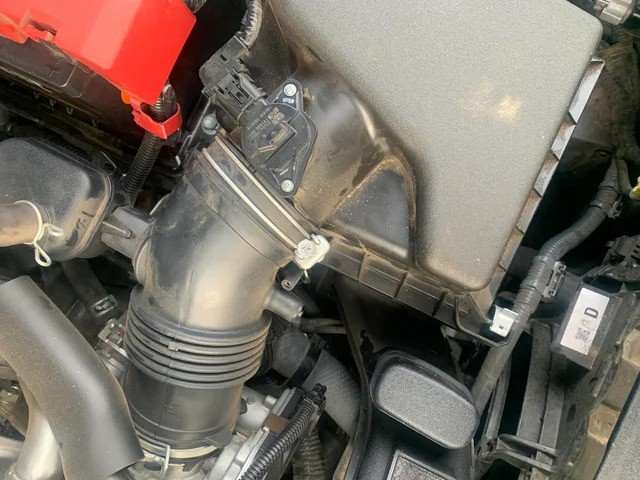How Long Will A Toyota Camry Last – A Simple Guide!
How Long Will A Toyota Camry Last – A Simple Guide!
From my experience, my Toyota Camry has been incredibly reliable. After consistently following the maintenance schedule, it’s comfortably passed 250,000 miles and still runs smoothly. Regular care truly makes a difference in how long these cars last.
A Toyota Camry usually lasts between 200,000 to 300,000 miles if you keep up with regular maintenance. With good care, many people find their Camrys keep running well beyond this range.
Curious how long a Toyota Camry can last? Find out why this car can keep going strong for over 200,000 miles with the right care!
What is the Average Lifespan of a Toyota Camry?
The average lifespan of a Toyota Camry is typically between 200,000 to 300,000 miles. This range can vary based on factors such as driving habits, maintenance practices, and environmental conditions. With regular maintenance and proper care, many owners report their Camry lasting well into the higher end of this range or even beyond.
How Many Miles Can a Well-Maintained Toyota Camry Typically Last?
A well-maintained Toyota Camry can typically last between 200,000 to 300,000 miles. This longevity is achieved with consistent care, such as regular oil changes, brake inspections, and timely repairs.

By following the manufacturer’s maintenance schedule and addressing issues promptly, many Camry owners have reported their cars exceeding this mileage range. In fact, some well-cared-for Camrys continue to perform reliably well beyond 300,000 miles, demonstrating their durability and long-term value.
What Factors Influence the Longevity of a Toyota Camry?
Regular Maintenance:
Adhering to the manufacturer’s recommended maintenance schedule, including oil changes, brake inspections, and fluid replacements, helps keep the car running smoothly and prevents major issues.
Driving Habits:
Gentle driving practices, such as avoiding rapid acceleration and hard braking, can reduce wear and tear on the vehicle’s components, contributing to a longer lifespan.
Environmental Conditions:
Extreme weather conditions, such as very high or low temperatures, as well as exposure to road salt or harsh environments, can impact the car’s longevity. Regular washing and protection can help mitigate these effects.
Quality of Repairs and Parts:
Using high-quality replacement parts and having repairs done by qualified technicians can prevent recurring issues and extend the vehicle’s life.
Mileage:
Higher mileage can lead to increased wear on engine and transmission components. Regular servicing and addressing issues early can help manage high-mileage wear and keep the car running longer.
Driving Conditions:
Frequent short trips and stop-and-go traffic can put additional stress on the engine and transmission, affecting longevity. Longer, consistent drives are generally less taxing on the vehicle.
How Often Should I Perform Maintenance to Extend the Life of My Toyota Camry?
Oil Changes:
Change the oil every 5,000 to 7,500 miles, or follow the schedule in your owner’s manual. Regular oil changes keep the engine lubricated and running efficiently.
Tire Rotation:
“Every 5,000 to 7,500 miles. Tire rotations promote even wear and help extend the life of your tires.
Brake Inspections:
Every 10,000 to 15,000 miles, or if you notice any changes in braking performance. Regular checks can help prevent major brake issues.
Air Filter Replacement:
Every 15,000 to 30,000 miles. Replacing the air filter helps maintain engine efficiency and performance.

Transmission Fluid:
Every 30,000 to 60,000 miles, depending on how you drive.Keeping the transmission fluid at the proper level helps maintain smooth shifting and prevent transmission problems.
Coolant Flush:
Every 30,000 to 60,000 miles. Flushing the coolant system helps prevent overheating and engine damage.
Battery Inspection:
Every 30,000 miles or as needed. Checking the battery ensures reliable starting and avoids unexpected failures.
Spark Plug Replacement:
“Every 60,000 to 100,000 miles. Replacing spark plugs helps maintain peak engine performance and fuel efficiency.
What Are the Most Common Issues That Affect the Lifespan of a Toyota Camry?
Engine Problems:
Common issues include oil leaks, worn-out timing belts, and overheating. Regular oil changes and coolant checks help prevent these problems.
Transmission Issues:
Problems like slipping gears or hard shifting can arise from low or dirty transmission fluid. Regular transmission fluid checks and changes are crucial.
Brake Wear:
Worn-out brake pads, rotors, or calipers can affect braking performance and safety. Regular brake inspections and timely replacements are essential.
Suspension Problems:
Issues such as worn-out shocks or struts can lead to poor ride quality and handling. Regular checks of the suspension system can prevent these problems.
Electrical Failures:
Problems with the battery, alternator, or wiring can cause electrical issues. Regular battery maintenance and checking electrical components can help avoid these failures.
Cooling System Failures:
Issues with the radiator, thermostat, or water pump can lead to engine overheating. Regular coolant flushes and inspections of the cooling system are important.
Exhaust System Issues:
Rust or damage to the exhaust system can affect performance and emissions. Regular inspections can help identify and address these issues early.
Tire Wear:
Uneven tire wear or bald tires can impact handling and safety. Regular tire rotations and alignments help ensure even wear and optimal performance.
Air Conditioning Problems:
Issues with the A/C system, such as leaks or a failing compressor, can affect comfort. Regular checks and timely repairs can keep the A/C system functioning properly.
Fuel System Problems:
Issues such as clogged fuel filters or failing fuel pumps can affect engine performance and fuel efficiency. Regular maintenance of the fuel system helps prevent these problems.
Can Driving Habits Impact the Longevity of a Toyota Camry?
Yes, driving habits can significantly impact the longevity of a Toyota Camry. Gentle driving practices, such as smooth acceleration and braking, help reduce wear and tear on the engine and transmission.

Avoiding sudden starts, harsh braking, and excessive speeds can minimize stress on the vehicle’s components, leading to fewer mechanical issues and a longer lifespan. Additionally, driving at moderate speeds and allowing the engine to warm up properly before heavy use can contribute to better overall performance and durability.
How Does Regular Maintenance Affect the Lifespan of a Toyota Camry?
Regular maintenance plays a crucial role in extending the lifespan of a Toyota Camry. Adhering to scheduled maintenance tasks, such as oil changes, brake inspections, and tire rotations, helps prevent small issues from escalating into major problems. For instance, regular oil changes ensure that the engine remains well-lubricated, reducing friction and wear on internal components.
Timely replacement of brake pads and tires prevents damage to other parts of the vehicle and ensures safety. By following the manufacturer’s maintenance schedule and addressing potential issues early, you can help keep the vehicle running smoothly and efficiently for many miles.
FAQS:
How often should I replace the timing belt on a Toyota Camry?
The timing belt on a Toyota Camry should generally be replaced every 60,000 to 100,000 miles, depending on the model year and engine type. Check your owner’s manual for specific recommendations.
Can I increase the lifespan of my Toyota Camry by using premium parts?
Using high-quality or OEM (Original Equipment Manufacturer) parts for repairs and replacements can help maintain the Camry’s performance and longevity, potentially extending its lifespan.
What maintenance should be prioritized for a Toyota Camry with over 200,000 miles?
For a Toyota Camry with over 200,000 miles, prioritize regular oil changes, thorough inspections of the engine and transmission, and replacement of critical components like the water pump and timing belt.
How can I improve the fuel efficiency of an older Toyota Camry to extend its life?
To improve fuel efficiency in an older Camry, ensure regular maintenance such as air filter replacements, tire alignments, and fuel system cleanings. Also, driving efficiently by avoiding rapid acceleration and maintaining steady speeds can help.
Conclusion:
A Toyota Camry usually lasts between 200,000 and 300,000 miles with regular maintenance. With good care, many owners find their Camrys continue to run well even beyond this range. Regular upkeep helps keep your Camry in top shape for many years.

I’m Harry Edward, your Toyota car expert. With 5 years of experience in Toyota car repair, I share practical tips and insights to help you keep your vehicle in top condition.
From routine maintenance to fixing common issues, my goal is to make your Toyota ownership experience smooth and enjoyable.







